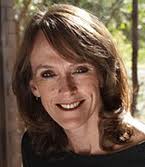|
|
|
|
|
|
|
News & Views item - May 2011 |
![]() Cathy Foley: Almost Any Major Development These Days Has a Rich Core of
Science Running Through It. (May 3, 2011)
Cathy Foley: Almost Any Major Development These Days Has a Rich Core of
Science Running Through It. (May 3, 2011)
We're a bit slow on the uptake, but a couple of weeks ago (April 19, 2011 in The Age), the president of the Federation of Australian Scientific and Technological Societies (FASTS), physicist Cathy Foley,* wrote an opinion piece which is in essence an apologia for science.
Some excerpts:
[T]he issue of the public acceptance of science is critical, not just for
scientists, but also for the wider community.
Earlier this year US President Barack Obama's science adviser, John Holdren, said: "Science, technology and innovation have been the primary drivers of [American] economic growth and productivity growth for decades." He's right, and successive Victorian governments of different political persuasions have understood that — investing not just in new research laboratories but also in the expensive instruments of modern science, such as the $200 million Australian Synchrotron.
From the first engineers hardening stone axes with fire in southern Africa 75,000 years ago to the researchers using the synchrotron to create printable solar cells, science has improved our lives, and given birth to new jobs and industries. But the importance of science is not just about the economy. Possibly the most human of all activities is trying to make sense of our surrounds.
Trying to make sense of our surrounds is at the base of many of our most creative activities — art, music, literature, philosophy, religion and particularly science.
[Science] adds to our knowledge of how the cosmos works. It makes it more predictable, hence a more comfortable, controllable and safer place in which to live.
Yet science is increasingly under attack. So what's not to like? The answer is possibly twofold — science reveals "inconvenient truths" and nobody likes a smarty pants.
There is, perhaps, a third reason. All the ways of making sense of our surrounds — the arts, humanities, religion, science — ought to be natural allies. [But w]hat science does have, which the others do not, is a systematic way of growing bigger, increasing its scope. And that sometimes has led it into conflict with the other disciplines.
From showing that the Earth moves around the sun to documenting climate change, the activity that is meant to make us more comfortable with our surrounds has a habit of making us feel less comfortable, and cutting the ground from under vested interests and entrenched views. The natural response is disbelief and reaction, closing our eyes or kicking back. You can see it in the climate change debate.
So perhaps it's time to build a new case for science... that our children need the ideas of science to help them make informed decisions about the next wave of technologies. And that without science our economy will falter.
It is no coincidence that the two states in Australia that over the past two decades have poured most resources into supporting science — Queensland and Victoria — are also where the most vibrant industries and growth areas of the nation are located.
John Holdren concluded his comments on science by saying: "No matter how severe the fiscal constraint, this is not the time to stop investing in the drivers of the economic growth we need for recovery, for job creation, for economic growth going forward."
He's right. Governments need to plan and act for the long term. Cutting science and science education is a foolish way to balance the budget.
_______________________________________________________________
*Dr Cathy Foley's own research interests centre on high-temperature superconductivity.